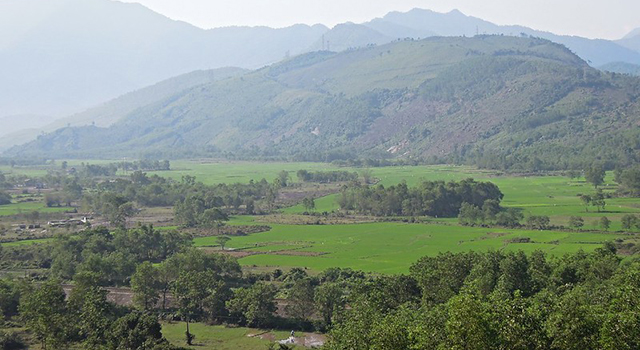
Thừa Thiên-Huế province, Vietnam. Photo by David McKelvey (CC BY 2.0).
GMS Project Enhances Biodiversity Conservation in Viet Nam
The Greater Mekong Subregion Biodiversity Conservation Corridors Project, an Asian Development Bank supported project that was first approved in 2010 and given additional funding in June 2015, has significantly contributed to forest protection in Viet Nam’s Quang Nam, Quang Tri, and Thua Thien-Hue provinces.




